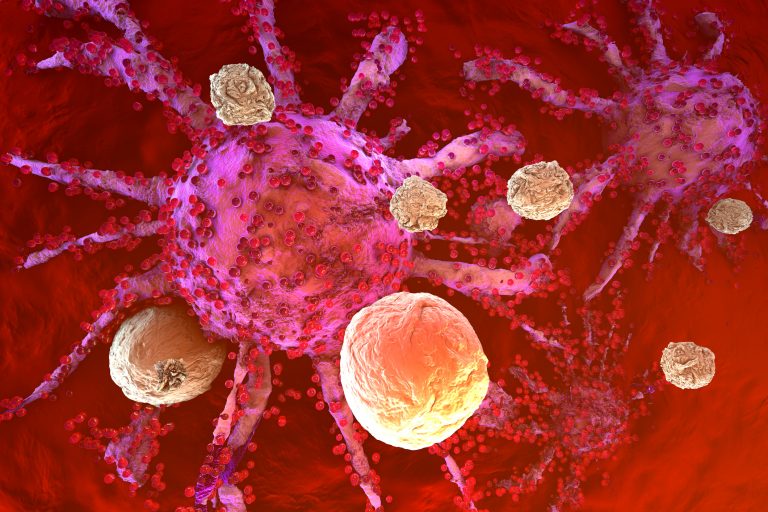
A new mouse study by researchers at the Monash Biomedicine Discovery Institute (BDI), the Peter MacCallum Cancer Centre, and Cold Spring Harbor Laboratory demonstrates inhibiting the protein tyrosine phosphatase 1B (PTP1B) in T cells can help to suppress tumor growth.
The findings are published in the journal Cancer Discovery in a paper titled, “PTP1B is an intracellular checkpoint that limits T cell and CAR T cell anti-tumor immunity.”
“Immunotherapies aimed at alleviating the inhibitory constraints on T cells have revolutionized cancer management,” the researchers wrote. “To date, these have focused on the blockade of cell-surface checkpoints such as PD-1. Herein we identify PTP1B as an intracellular checkpoint that is upregulated in T cells in tumors. We show that increased PTP1B limits T-cell expansion and cytotoxicity to contribute to tumor growth.”
Their findings also show the inhibition of PTP1B can enhance the response to a widely used cancer therapy that blocks the PD-1 checkpoint on the surface of T cells.
Senior author Tony Tiganis, PhD, professor, biochemistry and molecular biology, Monash, noted that although the blockade of PD-1 can be effective against many tumors, not all patients respond, and resistance may develop.
“While more preclinical work is needed, our findings show that superior outcomes were achieved when we combined PTP1B inhibition with existing immunotherapies in mice,” said Tiganis.
The authors showed that the inhibition of PTP1B also significantly enhanced the effectiveness of cellular therapies using CAR T cells.
“To advance this work, a key next step will be to further define the impact of PTP1B deletion in CAR T and conventional T cells in humans. There remains an urgent clinical need to identify and validate cellular targets to revive and sustain T-cell responses in cancer,” said Florian Wiede, PhD, senior researcher at Peter MacCallum Cancer Centre and first author of the study.
“In summary, our studies identify PTP1B as an integral negative regulator of T-cell function and an intracellular T-cell checkpoint that limits the antitumor immunity of tumor-infiltrated CD8+ T cells,” noted the researchers. “We demonstrate that the inhibition of PTP1B in cancer can enhance endogenous T cell–mediated antitumor immunity, akin to that seen by targeting the cell-surface checkpoint PD-1 that has revolutionized cancer therapy. Furthermore, the inhibition or genetic deletion of PTP1B can overcome a major hurdle that has thus far limited the effectiveness of CAR T cells against solid tumors.”
Tiganis and Wiede will continue to collaborate with Cold Spring Harbor Laboratory and DepYmed, a U.S.-based company developing PTP1B inhibitors, to test in their preclinical models orally bioavailable PTP1B inhibitor drug candidates as novel checkpoint inhibitors.













